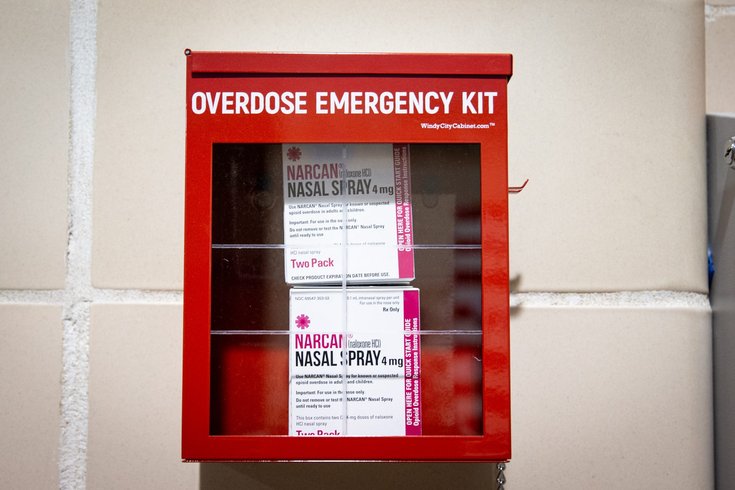
May 15, 2024
 Angela Piazza/Caller-Times; USA TODAY NETWORK
Angela Piazza/Caller-Times; USA TODAY NETWORK
Drug overdose deaths fell by 3% in 2023, the first decline since 2018, according to estimates from the CDC. But seizures of fentanyl have skyrocketed in the last two years, the DEA says.
Drug overdose deaths have dropped nationwide for the first time since 2018, but the main driver of these fatalities, fentanyl, is at record levels in the country's illicit drug supply.
An estimated 107,543 people died of drug overdoses in 2023, according to data from the Center for Disease Control and Prevention's National Vital Statistic System. That marked a 3% decrease from 2022, which saw an estimated 111,029 fatal drug overdoses.
Drug overdose deaths fell by about 9% in Pennsylvania from 5,248 in 2022 to 4,764 in 2023. In New Jersey, drug deaths fell about 11% from 3,073 in 2022 to 2,727 in 2023. Delaware saw a little more than a 3% decline from 544 in 2022 to 526 in 2023.
Philadelphia does not expect to have its final count of overdose deaths completed until September, but they are expected to exceed 1,300. In 2022, Philly recorded 1,413 overdose deaths. About 80% of them involved fentanyl.
The CDC's chief medical officer called the dip in fatalities "heartening news for our nation." But she warned that federal efforts toward prevention, services and harm reduction must continue.
"The data show we still lost over 100,000 people last year, meaning, there are still families and friends losing their loved ones to drug overdoses at staggering numbers," Dr. Deb Houry said.
In addition, the U.S. Drug Enforcement Agency's 2024 National Drug Threat Assessment report, released last week, says seizures of fentanyl in both powder and pill form are at record levels.
Nearly 70% of all fatal drug overdose deaths in 2022 were linked synthetic opioids, primarily fentanyl, a synthetic drug about 50 times more potent than heroin, according to the DEA. Methamphetamine and other synthetic stimulants were involved in about 30% of overdose deaths that year.
CDC provisional data shows that another 38,000 deaths were caused by synthetic opioids in the first six months of 2023.
Seizures of fentanyl powder nearly doubled, and seizures of fentanyl pills nearly tripled, over the past two years, the DEA report shows. In 2023, 30% of fentanyl taken by the DEA contained the non-opioid sedative, xylazine. Also known as "tranq," xylazine does not respond to the opioid-reversal medication naloxone and can cause serious, sometimes life-threatening wounds.